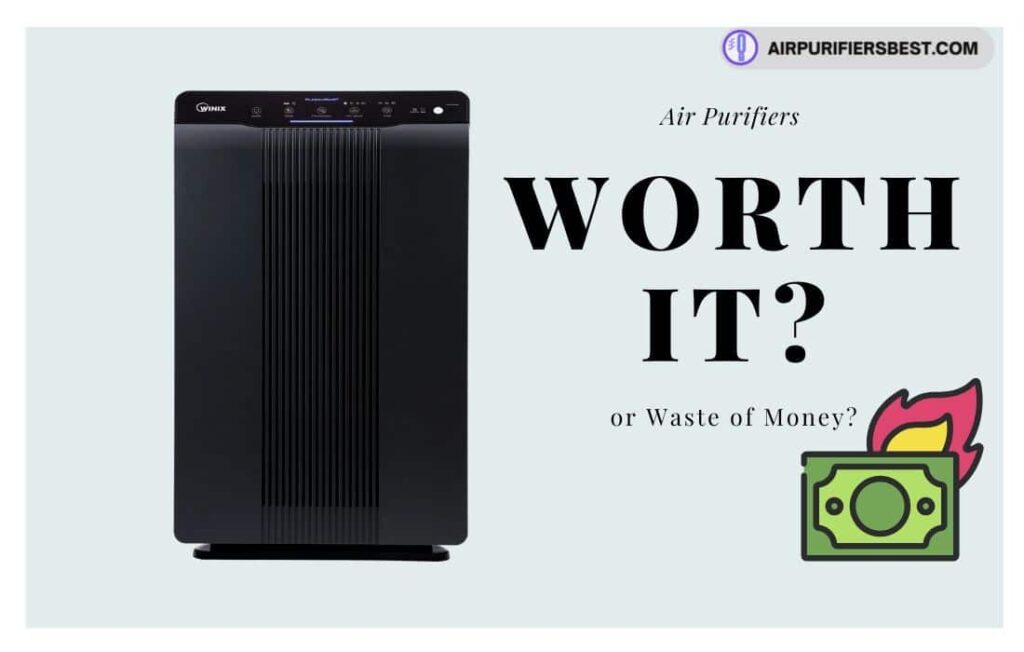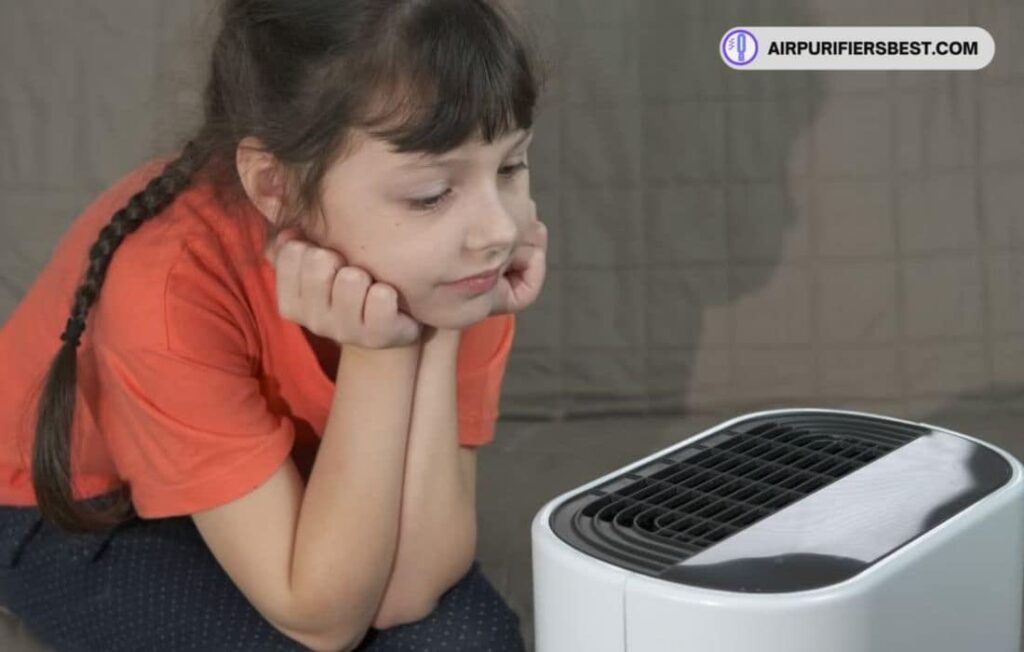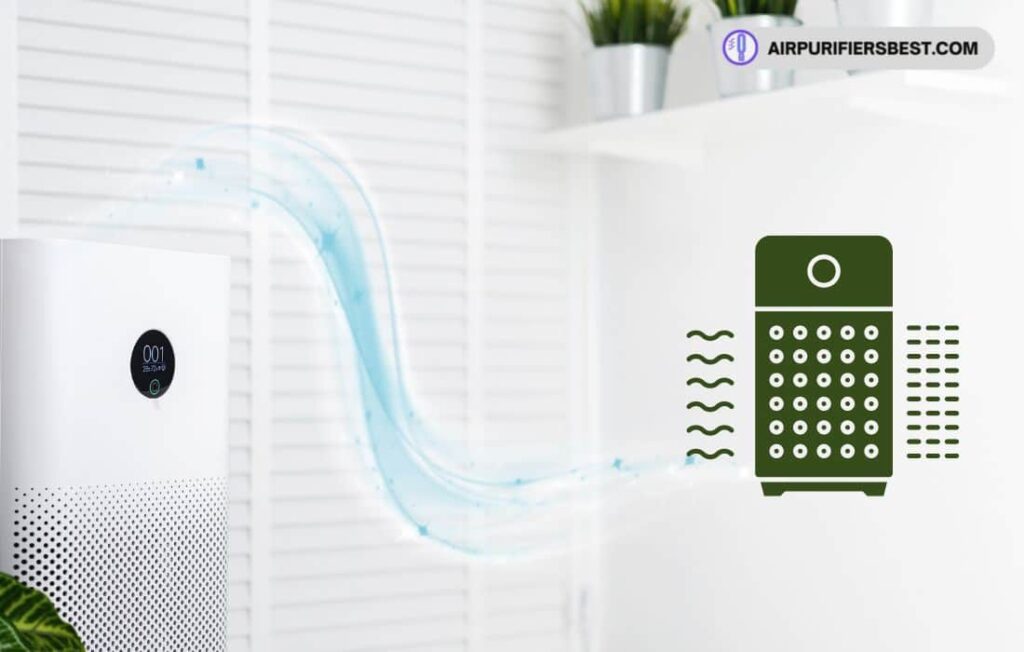No, it is not, a waste of money as it can improve indoor air quality by removing harmful airborne particles. The short answer is that air purifiers are effective and worth buying. Usually, it’s when people buy an air purifier with a capacity that’s below their room size that they think an air purifier is a waste of money. They’re useful, according to the EPA, because they’re an excellent approach to better your Menomonie and western Wisconsin residents’ indoor air quality. Modern homes are tightly sealed and thoroughly insulated, which is excellent for energy efficiency, but not so fantastic for indoor air quality. Our indoor air quality professionals at Halverson Brothers Inc can help you cut through the clutter and choose the best home air purifier. Air purifiers help with a range of very common air quality problems that can affect your comfort and even your health. In fact, the right kind of air purifier doesn’t cost a ton of money and for many people is a great investment.
Air purifier in your home you’re missing out on a slew of benefits. Purifiers help reduce harmful pollutants, eliminate toxic chemicals from living spaces, and neutralize unpleasant odors. Be aware of manufacturers’ claims of new technology and go for filters like activated carbon and HEPA that have been shown over many years to perform well in academic peer-reviewed studies. If you’re looking for which air purifiers work best for sneezes and wheezes, you’re in luck because we previously wrote a review of some of the best air filters for asthma and allergies.
So should talk about air purifiers that need you to pay attention to so that your buy is worth your money!
Are air purifiers worth it?
Yes, a good air purifier is well worth the money you’ll spend. The good news is that HEPA purifiers are actually a good buy and you don’t need to spend a ton of money to enjoy clean air.
Here is no harm in having a GENUINE air cleaner whose sole purpose is to provide clean air. Some argue that an air purifier will burn a hole in one’s pocket on filter change and electricity bills. It’s true on the first part, as filter replacement will cost you even more than the machine in a few years’ time.
- Always go for HEPA filters and skip regular air filters. HEPA filters are most beneficial for essential purification tasks such as removing dust aerosols, chemical droplets, and germs.
- While buying an air purifier, think about your entire home. You’ll probably find that it isn’t enough to just buy one portable air purifier for one area, but rather that your entire home has several areas that each need their own air purifier. Or, you can always also get a whole house air purifier that’s part of your HVAC system.
On your consideration many cost-effective air purifiers are worthy. we compiled the best list to help you determine which is the worthy air purifier for your hard-earned money. Its true HEPA filter has about 30% more efficiency and speed than regular air purifiers despite its price, so we think this may be a good starter for you. With 3 fan speeds and a 3-stage filtration, it can filter out most pollen, dust, and Fido’s hair.
It’s basically an extremely dense filter that traps microscopic particles (down to about 0.3 microns, or millionths of a meter) as they move into the fibers as a purifier circulates the air. HEPA filters permanently capture airborne particles meaning they have to be replaced once they’re very dirty.
- Best model and well-reviewed brand
- It mainly manufactures many brand name
- Its model does not use a HEPA type but uses a true hipa filter. because filtration standards did not meet the same in HEPA type.
- It is recommended as the best room air purifier.
- Start “fresh” and move out! Is not worth trading convenience over health in order to stay in a highly polluted area.
- Vacuum regularly to reduce the number of dust and allergens at home.
- Stop smoking indoors or better yet, quit smoking.
- Improved room ventilation by opening more windows and doors.
Benefits of air purifier
In a lot of cases, you may find that dust and other airborne particles don’t directly impact you that much. That means there’s a constant stream of different bacteria, pollens, and even viruses that circulate through your airways. When you breathe them in, your immune system kicks in to protect you – and the fewer times your body needs to do that, the stronger you’ll stay. Air purifiers both reduce the chances that you’ll get sick from air pollutants and make sure your immune system isn’t overworked by the air inside your home. This is super important as you don’t want to overpay for a small room or a minor issue such as vaping. But you also don’t want to avoid a smaller unit than is recommended as you will use up filters quicker and may not be able to keep a room totally free of pollutants.
Risk of allergies and asthma
Allergies and asthma pollutants include:
- Mold
- Pollen
- Dust particles
- Hairs of your pets
- Particles of home cleaners
Air purifiers prevent asthma symptoms and allergies by filtering out airborne allergens like pollen, dust, and animal dander. However, they do not cure asthma and allergies. Purifiers are more of a preventive measure; not a cure.
Budget-friendly: Many cost-effective air purifiers are worthy of your consideration. Based on our extensive research and reviews, we compiled the best list to help you determine which is the worthy air purifier for your hard-earned money.Air purifiers could be worth buying. if you are still new and want a budget-friendly option. They provide multi-stage filtering without breaking the bank. They’re also whisper-quiet and made with a true HEPA filter so they will be more effective than most air purifiers without such.
High maintenance: Portable unit owners have to put in a considerable amount of time and effort to keep them running smoothly. Also, they must be cleaned often and require frequent filter changes. HEPA filters should be replaced every 30 days while carbon and other filters should be changed roughly every three to six months. And yes they were expensive. That means there’s a constant stream of different bacteria, pollens, and even viruses that circulate through your airways. When you breathe them in, your immune system kicks in to protect you – and the fewer times your body needs to do that, the stronger you’ll stay. Air purifiers both reduce the chances that you’ll get sick from air pollutants and make sure your immune system isn’t overworked by the air inside your home.
Get rid of bad odors
If your home possesses persistent odors of things such as smoking, cooking, and detergents that are tough to remove, then installing an air purifier will solve the problem. Persistent odors, including cigarette smoke or cooking smells, can be tough to remove. If you having difficulties with eliminating heavy smells in your residence, we suggest getting an air purifier with charcoal or an activated carbon filter
Get rid of pet dander &protection against airborne germs:
Pet dander consists of several allergens that aggravate sensitive immune systems, including pet saliva, dead skin cells, and even outside particulates brought in by your pet on their coat. These factors or allergens trigger those allergies and, more often than not, are dispersed throughout your indoor air and on furniture. Reduces dust and dust mites buildup in a home, so fewer house chores and vacuuming is needed. Halt the growth and spread of airborne pathogens like mold, and mildew around the house.
Energy-efficient unit – If you are worried about the cost of electricity, look for an Energy Star-certified model.
How does an air purifier work?
Air purifiers can either be portable or stationary. Portable air purifiers, which is what most people use, can be used in individual rooms and moved around to be plugged in somewhere else as needed. Large air purifiers can be used with central HVAC systems and are built into the ductwork. It can give you powerful filtration for your entire home rather than having to have a portable air purifier for each room. An air purifier can be compact and used to treat an individual room. Or they can be added to your HVAC system, providing strong filtration for your entire home. The EPA says you should be aware that air purifiers can’t get rid of every contaminant from your residence’s air.
It’s very important to understand a few things that can make a huge difference:
- There’s a big difference in quality as some air purifiers aren’t as good as others (don’t clean the air as effectively)
- You should always use a purifier that’s correctly matched to the room size you’re using it in. (I’ll go into more detail about this later).
A good air purifier can trap a wide range of airborne contaminants that affect your comfort & even your health:
- Allergens such as those from pets (pet dander), dust mites, plants, and more.
- Household dust and fibrous particles from carpet, building materials, and what you bring inside from the outdoors.
- Viruses & microorganisms that can make you sick.
True HEPA filter traps airborne contaminants e.g. dust mite, hair, pet fur, pet dander, pollen, mold, bacteria, and viruses as small as 0.3 microns. Toxic fumes, smoke, and odors will be absorbed by an activated carbon filter instead. While an air purifier can make a big difference in the air quality, the filter will get clogged after some time.
FAQs:
Q: Where To Put Air Purifier
Air purifiers are best put where the bad smells happen and where there’s mostly dust. For instance, the kitchen, the bedroom, and any place where there is a lot of pollution.
Is it expensive to use an air purifier?
It depends on the size, frequency of use, and power use of your air purifier. Here’s a helpful resource that can help you calculate your monthly electricity bill before you purchase one.
Do air purifiers make a difference?
Yes, they do. Air purifiers can significantly reduce 99.97% of particles in the air using True HEPA filters, which include:
- Dust
- Smoke
- Pollen
- Pet hair or dander
- VOCs
How long should I keep the air purifier running?
Modern air purifiers come with auto mode. It uses built-in air quality sensors to detect and evaluate the air and runs purifiers only when required.
Conclusion:
Air purifiers are not a waste of money if you look for one with the criteria that we mentioned above. Air purifiers are definitely worth it. Air purifiers are best put where the bad smells happen and where there’s mostly dust. One more thing, an air purifier is not a substitute for your housekeeping work. Think more like a sidekick that traps disturbed particles from flowing back into your lungs.




